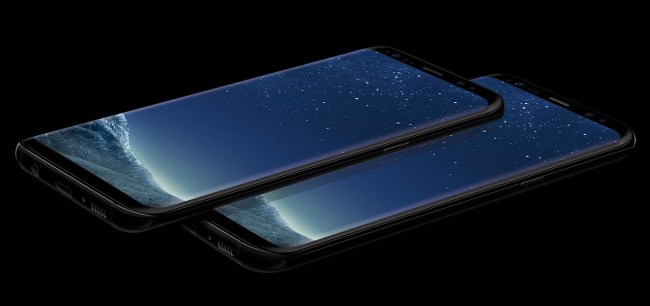Some have said that the new Samsung Galaxy S8 features the best phone display ever. This is great news for Apple, Samsung’s fiercest competitor. That is because Apple is reportedly set to purchase a massive amount of curved OLED displays for the upcoming iPhone 8.
On Tuesday, Nikkei Asian Review published a report that stated Apple has ordered 70 million OLED phone screens from Samsung and they are for a handset that is coming out this year.
From Mashable:
Apple is rumored to be launching three new iPhones this fall: Two with a regular, LCD screen, and a “premium” variant that will have a curved OLED screen. Judging by the size of this order, Apple expects this version — which is also rumored to be pricier than usual — to sell well.
The report confirms a similar report from February that said Samsung Display will manufacture a total of 160 million OLED panels for Apple. Previous rumors claimed Apple will order some of the OLED panels for the new phone from LG Display, but Samsung Display is the obvious choice with its towering, 99 percent market share in the mobile OLED space.
The new iPhone could look like this.
Apple’s iPhone 8 flagship will boast a massive 5.8-inch organic light emitting diode (OLED) display #applenews https://t.co/DZjdIEcfeU pic.twitter.com/np20xYaHT9
— iDrop News (@iDropNews) March 12, 2017
Samsung first started offering curved screens in their Galaxy S7 Edge and has since made it a huge feature in their forthcoming Galaxy S8 and S8+. The Galaxy S8 features a 5.8-inch Infinity Super AMOLED curved display with 2960 x 1440 resolution. While the S8+ boasts a huge 6.2-inch Infinity Super AMOLED curved display with 2960 x 1440 resolution.
In other iPhone 8 rumors, Nikkei reported that all three new iPhones will be waterproof and will come with wireless charging. At least one model will have 3D sensors for facial recognition.
The two iPhones with LCD screens will have displays sizes of 4.7-inches and 5.5-inches, the same as the iPhone 7 and iPhone 7 Plus. The premium version will feature a curved 5.2-inch OLED screen and it will not have a home button.
The phones are expected to be announced by Apple in September.
